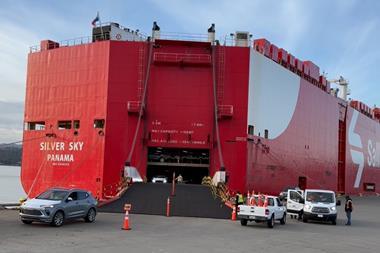
Japanese carmaker Mitsubishi will end Colt and Outlander vehicle assembly at its Netherlands Car (Nedcar) production facility in Born at the end of 2012 and has no plans to introduce a new model to the plant in 2013. The company said that the status of the facility beyond then was yet to be decided.
The current Colt and Outlander versions are reaching the end of their lifecycle and Mitsubishi is bringing in a new-generation Outlander and an entry model dubbed Global Small, but these will made in Asia.
Mitsubishi will rely on imports from Japan and Thailand to meet demand in Europe, including for the Global Small, which is part of a project that includes a new platform and a new dedicated factory in Thailand.
“From that hub, [the Global Small] will be shipped to emerging and mature markets around the world, including Europe, something never intended for the Colt,” a spokesman for Mitsubishi Motors Europe (MME) told Automotive Logistics.
The successor for the Outlander will be a more “upmarket [and] higher tech” vehicle and will be built in Japan for all markets around the globe.
In a statement the company said that due to “the wildly fluctuating operating environment which automobile manufacturers currently face” it could not come up with a “reasonable solution to utilise NedCar” among its global production operations and concluded it was “not viable” to produce another model there.
Factors such as import costs to the Netherlands for the parts and knockdown kits it uses to assemble the Outlander, as well as the lower wage ranges in Thailand against those paid in the Netherlands all played their part in the decision to end production. However, the spokesperson emphasised that MME’s decision had more to do with the the carmaker’s shift from regional to global brands produced at hubs that were designed to service the world market as a whole.
“One also has to consider that consolidating global production of a given model in one factory or country is quite reasonable in terms of economies of scale, more so for a mid-size manufacturer such as Mitsubishi Motors,” he said.
The stagnation of sales in Europe was also an influence on the decision to end production in the Netherlands.
“No matter how hard one tries – and we did try very hard – a regional-only factory like Nedcar is always at a risk in case its local market can no longer absorb its output as originally forecasted,” he said. “This is what happens with the severe structural economic crisis and depressed markets we now deal with in Europe.
NedCar has produced a cumulative 1.1m vehicles since it began operations at the plant in 1991 but it now represents a moderate proportion of the volume Mitsubishi sells in Europe. Volume has dropped from around 200,000 cars per year to 50,000. It already imports the i-MiEV, Lancer, ASX and Pajero from Japan and the L200 from Thailand.
The Nedcar plant started as a three-way joint venture in 1991 between Mitsubishi Motors Corporation (MMC), Volvo, and the Dutch government. MMC became the sole shareholder when it bought all the remaining shares from its partners in March of 2001.



































